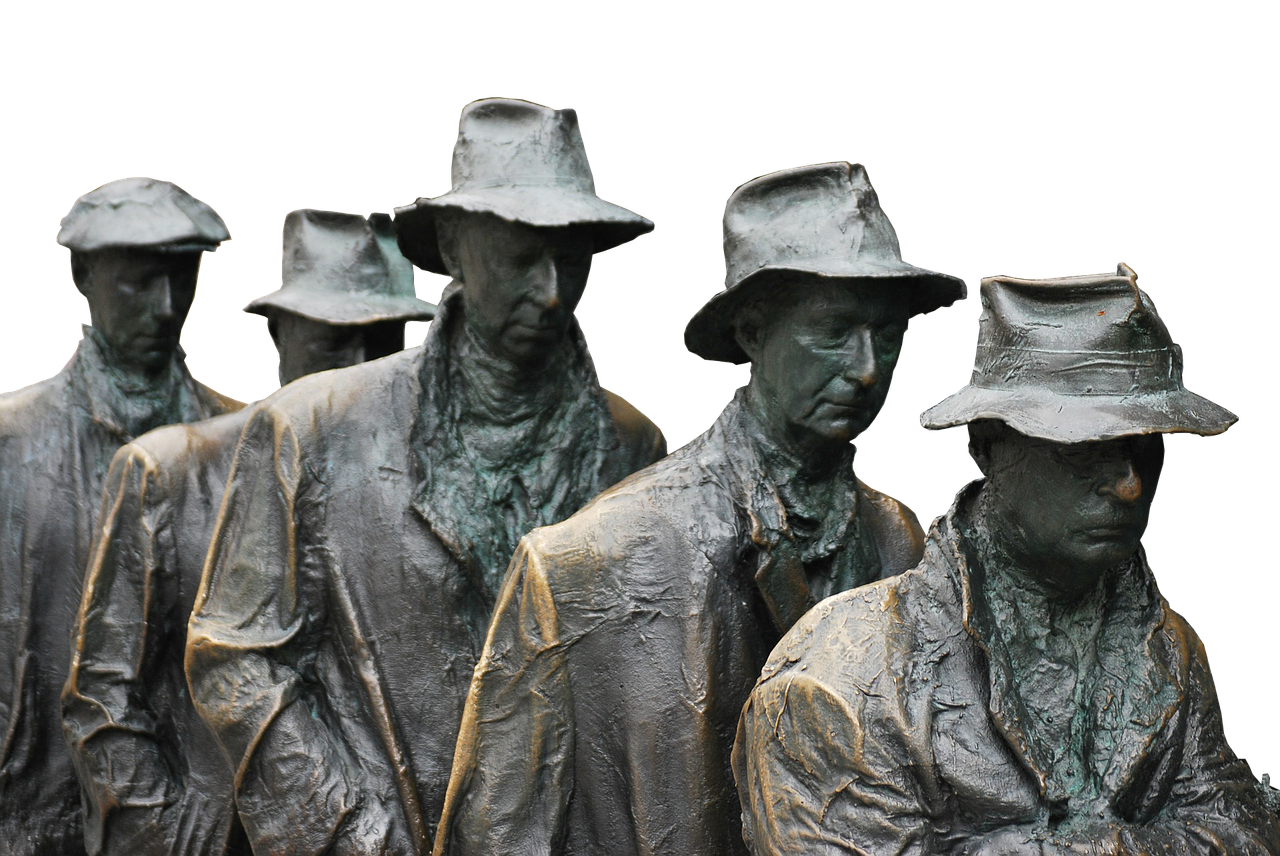The current climate of gender purging is an alarming one.
“In Boston, the leader of a businesswomen’s group said that some women were so angry about the wave of sexual harassment revelations that they no longer wanted to hire more men.” That’s the opening line in a recent article in the New York Times. The woman is 32-year-old Kristina Tsipouras, and the group she founded and heads is Boston Business Women.
At first glance, the idea of not hiring men seems and probably is, legally, quite discriminatory. But think about it. Aside from its unfairness to good men, from a practical point of view, it does appear to be the easiest solution to all the gender difficulties we’re now witnessing. Writing in the Times in early October, following the Harvey Weinstein allegations, Claire Cain Miller wrote of the uneasiness a lot of men now had in having one-on-one interactions with women, and how this can be detrimental to women’s advancement. Miller went on to say, “In interviews, women in companies with many female or gay executives were more likely to say one-on-one relationships had never been an issue for them.”
The implication is clear: Companies will do better with one-on-one interactions if they show a preference for putting women and gay men in executive positions. But that was before revelations about Kevin Spacey and James Levine, which showed that gay men can be, at the very least, inappropriate too—though in this case, with other men.
One important thing is true as of today: All of the people thus far publicly accused of sexual harassment are male. So why take chances? Why not simply hire women? And only nominate women for public office?
I wrote recently of my concerns about EMILY’s List, a major national fundraising organization, which donates only to Democratic women (never men) who support a woman’s right to choose. Less than a week later in a Times article titled “Women Line Up to Run for Office, Harnessing Their Outrage at Trump,” Stephanie Schriock, the head of EMILY’s list, is quoted as saying that “In the 10 months before the election in 2016, about 1,000 women contacted her organization about running for office or getting involved in other ways. Since the election, she said, the number has exploded to more than 22,000.”
Of course, in recent months, their outrage at Trump would be joined by anger at the ever-growing list of other men who have mistreated women in ways big and small.
Within the U.S. Senate recently, there was something approaching outrage directed by Democrats at one of their own, Sen. Al Franken of Minnesota. Sen. Kirsten Gillibrand (NY) began the call for his resignation, but she was soon joined by about 10 other female Democratic senators. And the chorus quickly grew to include men (and more women). I did note that the first five male Democratic senators to call for Franken to step down—Bob Casey of Pennsylvania, Sherrod Brown (Ohio), Joe Donnelly (Ind.), Michael Bennet (Colo.), and Edward Markey (Mass.)—have, among them, 11 daughters and two sons. I was not surprised by this. Though I have no daughters of my own, I have many male friends who do, and I certainly can appreciate fathers’ concerns for their daughters’ well-being. I also understand their hopes for their children’s unbridled opportunities for success. (Of course, I, and other fathers of sons have the same hopes for our children.)
But the kind of gender purging now going on can help the fathers of daughters too. A Times article that appeared well before the #MeToo movement had the headline, “A Proven Way to Win in Business: Have a Daughter, Hire Women.” Regarding having a daughter, the piece says, “Even men who play traditional gender roles in their personal lives tend to want their daughters to be independent and high-achieving, research has found.” And “having daughters seems to make them more aware of sexism.”
So where does all this leave boys, men, and parents who only have sons, especially fathers? Not in a very good place, at least for now. The above kind of research would encourage the hiring of women, and, if it’s necessary to hire men, then it should be the fathers of daughters. And in the current climate, there seems to be a growing preference, at least among Democrats, to run women in elections, period.
But things do change. The Al Franken situation has led many to question just how far we are going to take our current obsession with sexual harassment. Ruth Bader Ginsburg, in reaction to the inauguration of Donald Trump and the ascendancy of the right, said, “A great man once said that the true symbol of the United States is not the bald eagle. It is the pendulum. And when the pendulum swings too far in one direction it will go back.” For Democrats, the pendulum indeed may have swung too far in an anti-male direction. Conversations I have with my sons (I have three) about them and their sons (my five grandsons) show that they are experiencing more and more concern about men’s, and soon to be boys’, place in the world. I have had similar conversations with other fathers of sons.
What message is EMILY’s List sending to progressive men who aspire to run for office? What does the growing preference for hiring females say to our sons? Michelle Conlin’s words in “The New Gender Gap,” her groundbreaking cover story in Business Week magazine in May 2003, still ring true today: “It may still be a man’s world,” she wrote. “But it is no longer in any way a boy’s.” (And actually, at least in the media and the academy, it’s starting to look a bit less like strictly “a man’s world.”)
As Warren Farrell, the coauthor of the upcoming book, The Boy Crisis: Why Our Boys Are Struggling and What We Can Do About It, has often said, we’re all in this boat together. If boys suffer, girls and women will ultimately suffer too. We realized decades ago that our society needed the full participation of all its members, regardless of gender, and we strove, with great success, to improve education and opportunity for girls. But a lot of these girls will one day want successful male partners and many will have sons. They will ultimately be best served by a society that recognizes that male success and inclusion matters too.
This article first appeared on the Psychology Today blog.




